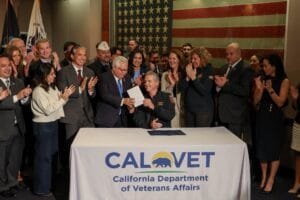ECOWAS sets 2027 for ECO currency rollout
A communiqué from the session highlighted the adoption of selection criteria proposed by the High-Level Committee to determine which member states will first adopt the ECO and which will join later.

The Economic Community of West African States (ECOWAS) has announced plans to launch its long-awaited single currency, ECO, by 2027. This decision, delayed from the initial 2020 target due to the COVID-19 pandemic, was confirmed during the 66th Ordinary Session of the Heads of State and Government in Abuja on Sunday.
A communiqué from the session highlighted the adoption of selection criteria proposed by the High-Level Committee to determine which member states will first adopt the ECO and which will join later. The West African Monetary Agency (WAMA) has been tasked with integrating these criteria into the protocol for establishing the ECOWAS Monetary Union Agreement.

“This is a historic milestone for West Africa,” said an ECOWAS spokesperson. “The ECO will foster economic integration, improve trade efficiency, and strengthen the collective resilience of our economies.”
The Authority approved the High-Level Committee’s recommendations on funding sources, costs, and implementation modalities, stressing that all efforts must align with the 2027 timeline. It also emphasized the importance of financial commitments by member states and central banks to operationalize institutions necessary for the currency’s introduction.
“Member states must show unwavering commitment to this project,” an ECOWAS official added. “The success of the ECO depends on collective efforts and timely action to meet the established deadlines.”
In addition to monetary policy, the session recognized the progress of the ECOWAS Agricultural Policy (ECOWAP) in addressing food security and nutrition across the region. The Authority directed the Commission to intensify efforts on regional strategies, including livestock farming, the Regional Rice Self-sufficiency Initiative, and the Comprehensive African Agriculture Development Programme (CAADP) Action Plan for 2026-2035.
“The role of agriculture in our region cannot be overemphasized,” said one of the ECOWAS heads of state. “Food security is tied directly to economic stability, and we must prioritize these initiatives to support our citizens.”
ECOWAS leaders underscored the need for collaboration with technical and financial partners, urging member states to strengthen ties with community institutions to achieve these goals.
The introduction of the ECO is expected to boost regional trade and accelerate economic growth. “The ECO will not only ease trade across borders but will also symbolize unity and shared prosperity in West Africa,” an ECOWAS representative remarked, expressing optimism about overcoming challenges to meet the ambitious 2027 target.














